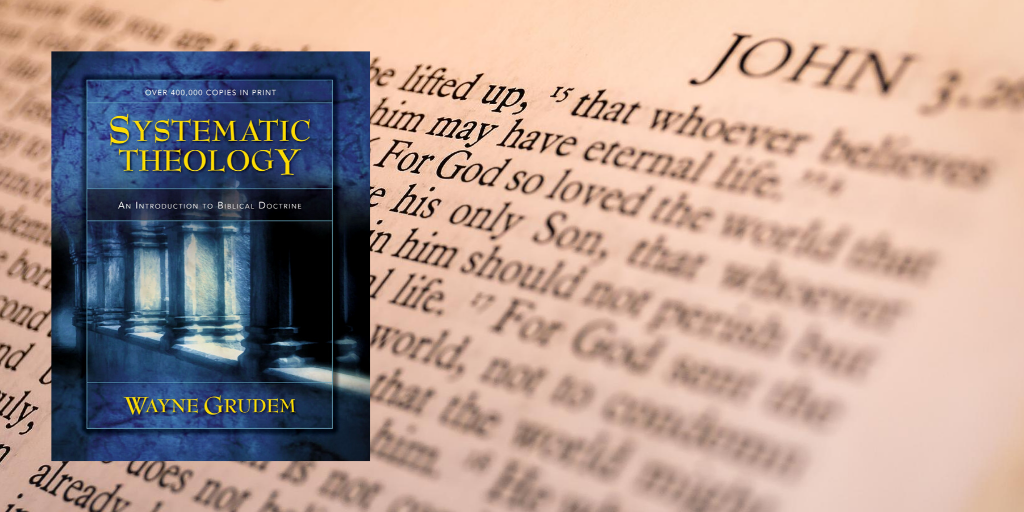How the top 5 objections to Christian presuppositionalism from believers and unbelievers ultimately fail.
Short Answer
#1: Presuppositionalism depends on circular reasoning…but so does every other worldview.
#2: Presuppositionalism is dogmatic…but so is every other worldview.
#3: Presuppositionalism prevents common ground with unbelievers…is both true in one sense and false in another.
#4: Presuppositionalism dodges having to present evidence for Christianity…is not true, but is based on a caricature of presuppositionalism.
#5: Presuppositionalism doesn’t prove the Christian God…is sometimes true and sometimes not.
Long Answer
Presuppositional apologetics (aka presuppositionalism) is not without its critics. Not only do non-Christians mock it, but other Christians attack it. These are some of the top objections to Christian presuppositionalism and how these objections ultimately fail.
Objection #1: Presuppositionalism Depends On Circular Reasoning
Circular reasoning happens when the claim is dependent upon the conclusion. In logical form, it looks like this:
X is true because of Y.
Y is true because of X.
Detractors claim that presuppositionalism presents a circular argument. This challenge varies depending on the person, but a statement they might attack is something like this: “The Bible is God’s word because the Bible says it’s God’s word.”
“All Scripture is breathed out by God and profitable for teaching, for reproof, for correction, and for training in righteousness.” (2 Timothy 3:16)
There is some validity to this objection. Believers in presuppositionalism admit to a certain kind of circularity though they deny that it’s “viciously circular.” Instead, they point out Christian presuppositionalism is a type of foundational claim about truth. All such foundational claims are necessarily circular. In other words, it depends on itself to make the claim. So this charge about circularity isn’t just a problem for the presuppositional Christian, it’s a problem for all foundational claims about truth. John Frame addressed this problem on frame-poythress.org:
“As Van Til says, circular argument of a kind is unavoidable when we argue for an ultimate standard of truth. One who believes that human reason is the ultimate standard can argue that view only by appealing to reason. One who believes that the Bible is the ultimate standard can argue only by appealing to the Bible. Since all positions partake equally of circularity at this level, it cannot be a point of criticism against any of them.”
Christian presuppositionalism is circular. But so is every worldview: human reason, Buddhism, Scientism, or anything else. So anyone objecting to presuppositionalism because it’s circular probably hasn’t thought enough about their own belief system’s circularity.
Objection #2: Presuppositionalism is Dogmatic & Absolutist
Another objection to presuppositionalism is that it’s “dogmatic” or “absolutist”. Christianity claims itself to be true in the sense that “God said it’s true” and it can brook no legitimate opposition.
There are two reasons people object to presuppositionalism in this way.
One reason is we live in an age relativism. Any worldview that claims to be the one way to truth or God will be suspect. Relativism claims all religions are equally valid because it’s impossible to know the real truth of any worldview. That’s one of the main reasons relativism bristles at orthodox Christianity and claims presuppositionalism is overly dogmatic.
Secondly, this objection highlights Christianity’s attack on the primary “religion” in the Western world: secular humanism (read: atheism). Secular humanism objects to Christianity’s dogmatic assertions because, like all worldviews, it also aims for dominance. Secular humanism’s absolutism demands explanations for everything apart from God. In philosophy, science, ethics, law, entertainment, and everything else, it describes the world apart from God. Interestingly, secular humanism is dogmatic and absolutist in the same way Christianity is.
“Jesus said to him, “I am the way, and the truth, and the life. No one comes to the Father except through me.” John 14:6
Just like in the above objection to circularity, anyone objecting to presuppositionalism based on it’s dogmatism hasn’t thought much about their own system of thought. Certain axioms are assumed to be true in every truth system. This is easy to see in Secular Humanism, but it’s also true in relativism. Few philosophers hold to relativism because of it’s woefully contradictory truth claims. So once again, Christianity is not the only worldview guilty of this charge: every worldview has the same “problem” of being dogmatic.
Objection #3: Presuppositionalism Prevents Common Ground With Unbelievers
A common objection to presuppositionalism from the Christians is how presuppositionalists disparage the common ground between believers and unbelievers. These theologians claim that presuppositionalists won’t admit to commonly-held values between believers and unbelievers. Frame quotes about this objection from Classical Apologetics:
“There is common ground, namely the whole of creation. Believer and unbeliever live in the same universe. Each sees the same phenomena. The unbeliever and the believer can agree that two and two are four, and at certain principles of deduction are valid while others are invalid. Thus a kind of common ground is established.”
In laying out this framework, the authors are attacking presppositionalism when they say presuppositionalists minimize the “common ground” between believers and unbelievers. They claim their method is a more congenial way to interact with unbelieving thought.
On the one hand, the classical apologists are right. Presuppositionalists believe in the noetic effects of sin (how sin has affected our abilities to think). The Christian views the world from one set of glasses, but the non-Christian cannot view the world from the same glasses because his lenses are cracked because of sin. So there is no pure common ground between the believer and unbeliever.
“Do not love the world or the things in the world. If anyone loves the world, the love of the Father is not in him.” 1 John 2:15
However, the objection is also weak. Presuppositionalism does not claim there is no common ground between believers and unbelievers. Both Christians and non-Christians speak common languages, enjoy common foods, drive the same cars, and have many similarities with each other. But Christians do not share the same basic commitments to truth as non-Christians. They hold to mutually exclusive worldviews with points of intersection, but not at the foundational level. They do not share common presuppositions.
Objection #4: Presuppositionalism Dodges Having To Present Evidence for Christianity
Atheist Steven Shives suggests that those who hold to presuppositionalism dodge his requirement for presenting evidence for the truth of Christianity. He says that if Christianity is true, there should be ample evidence for its truth and presuppositionalism shouldn’t ignore the evidences for it.
Shives illustrates a common misunderstanding of presuppositionalism. Presuppositionalism is not an appeal to evidence and is not subject to that objection. Presuppositionalism is an appeal to the epistemological and metaphysical reality of the universe, namely God. Any evidence should be interpreted in that light.
Secondly, presuppositionalism (usually) does not oppose evidence for the existence of God. Depending on the practitioner, presuppositionalists may use traditional proofs for God’s existence or attempt to persuade unbelievers using evidence for the reliability of the Bible. The difference between the convinced presuppositionalist and the pure evidentialist apologist is that the presuppositionalist doesn’t depend on the evidence to convert a non-Christian. To the presuppositionalist, the non-believer “must be born again” (John 3:3) to believe the claims of Christianity. So evidence has a limited benefit in presuppositionalism.
“But in your hearts honor Christ the Lord as holy, always being prepared to make a defense to anyone who asks you for a reason for the hope that is in you; yet do it with gentleness and respect.” 1 Peter 3:15
Objection #5: Presuppositionalism Doesn’t Prove The Christian God
Another objection forwarded by, now-agnostic Ed Morris at noble-minded.org suggests that presuppositionalism casts doubt on materialistic naturalism, but it doesn’t prove the existence of the Christian God. He thinks the arguments could be just as easily be employed to prove the Muslim god, Allah, or the mythical Norse god, Thor. Presuppositionalism only points to the existence of a higher power, but not to the Christian Trinity.
Morris’ claim that presuppositionalism can point to a higher power may suggest he has not encountered the more robust forms of Christian presuppositional apologetics – in other words, he’s attacking a “straw man”.
The Bible declares God to be of a certain nature: God has all knowledge (Colossians 2:3), he acknowledges the laws of logic (2 Timothy 2:13), he precedes the material universe (Genesis 1:1), etc. The Trinitarian God as revealed in Scripture possesses attributes that no other so-called deities from other religions retain. So the best formulations of the presuppositional apologetics like the Transcendental Argument for the Existence of God or TAG Argument, depends upon Biblical theology, not Old Norse theology.
In Conclusion: Presuppositionalism Is Hard But True
Like all good theology, presuppositionalism is complex. It takes much biblical, theological and philosophical data and attempts to synthesize a Christian apologetic aimed at making Christianity reasonable to an honest seeker aided by the Holy Spirit. Understanding presuppositionalism can be difficult, but it is not impossible to grasp.
Finally, if presuppositionalism is generally true (and I think it is), then it will withstand the philosophical, theological, and other intellectual challenges it faces. Because that’s what truth does. It doesn’t mean the challenges won’t seem legitimate and it doesn’t mean it won’t take work, but the challenges will ultimately fail if a system is true. Because presuppositionalism wasn’t created by Van Til, Calvin, or any other theologian. Presuppositionalism is an application of Biblical truth (2 Timothy 3:16).
Resources
- K. Scott Oliphint: Answering Objections to Presuppositionalism
- John Frame: Ten Problems with Presuppositionalism Answered
Photo by Jilbert Ebrahimi on Unsplash.








